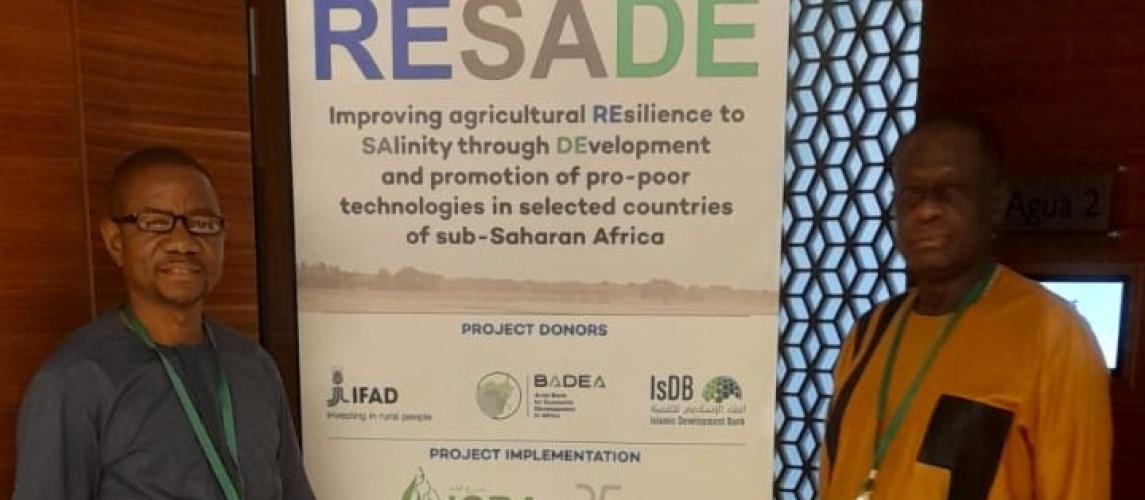
‘RESADE-CARI Project Introduces New Technologies, Increases Productivity In Salinity-Affected Communities In Liberia’- Says Dr. Karnuah
By Mark B. Newa
DUBAI, UAE - The Director General of the Central Agricultural Research Institute (CARI), Dr. Arthur Bob Karnuah, announced that the RESADE-CARI project has successfully introduced improved technologies to increase productivity in salinity-affected lands within target communities in Liberia. This initiative has significantly enhanced the capacities of farmers, cooperatives, and the National Agricultural Research and Extension Services (NARES) providers in Liberia.
Dr. Karnuah highlighted that before the introduction of the RESADE project, the issues of salinity were not part of any public conversation in Liberia. Many stakeholders were unaware that salinity was one of the abiotic stresses impacting agricultural productivity.
He disclosed this during the stakeholders' workshop held in Dubai, United Arab Emirates, from December 5-7, 2024. The workshop focused on "Improving Agricultural Resilience to Salinity through Development and Promotion of Pro-Poor Technologies" (RESADE).
The Director General, however, expressed sincere gratitude to all the farmers, stakeholders, and supporting organizations, including IFAD, BADEA, and ICBA, for bringing the RESADE project to salinity-affected communities in Liberia.
Unlike in other countries where the project enhanced existing initiatives, Dr. Karnuah stated that the RESADE project introduced entirely new concepts and interventions to Liberia. “Stakeholders and beneficiaries have deeply appreciated the project's impact on national agricultural development.”
According to him, the project has raised awareness among stakeholders that salinity is a significant soil problem. “Farmers can now identify and address salinity alongside other soil stresses,” he added.
Dr. Karnuah assured continued support from CARI in implementing the project successfully. He called for more donor support to upscale project activities, reach additional communities, and positively impact more farmers' lives.
The Liberian delegation included the Director General of CARI and Dr. James S. Dolo, National Coordinator of the RESADE-CARI project.
The RESADE project is implemented by the International Center for Biosaline Agriculture (ICBA) in partnership with the International Fund for Agricultural Development (IFAD) and the Arab Bank for Economic Development in Africa (BADEA).
The project addresses salinization in seven Sub-Saharan African (SSA) countries, including The Gambia, Liberia, Sierra Leone, and Togo in Western Africa, and Botswana, Mozambique, and Namibia in Southern Africa.
Approximately 11,550 smallholder farmers, with at least half being women, in the targeted areas adopt salinity and climate-resilient cropping systems. The primary goal is to improve food security and reduce poverty among poor smallholder farmers, particularly women, in salinity-affected areas. Objectives include increasing agricultural productivity and incomes, developing value chains for introduced cropping systems, building the capacity of farmers and extension workers, and incorporating climate-smart models into national policies and strategies.
The RESADE-CARI project marks a pivotal step toward sustainable agricultural development in Liberia, addressing critical issues of salinity and enhancing the resilience and productivity of the agricultural sector.
